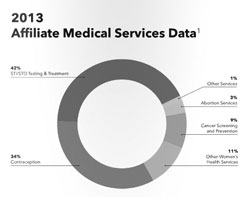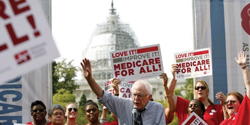The Senate came closer to passing President Joe Biden’s $1.9 trillion economic relief package on Friday, after Vice President Kamala Harris broke a 50-50 tie between the legislature’s Democrats and Republicans.
Via an ongoing process known as budget reconciliation, which allows the Senate to forgo the 60-vote majority rule, Democrats have successfully secured funding for the divisive bill and will soon move forward with concrete legislation on the package.
President Biden proposed the American Rescue Plan in the week before his Jan. 20 inauguration. According to WhiteHouse.gov, the bill, which would be the administration’s first major piece of legislation, is “an aggressive, two-step plan for rescue, from the depths of this crisis, and recovery, by investing in America, creating millions of additional good-paying jobs, combatting the climate crisis, advancing racial equity, and building back better than before.”
On Sunday in an appearance on CNN’s State of the Union, newly-minted Treasury Secretary Janet Yellen predicted that if the plan comes to fruition, the United States could see rapid economic growth culminating in pre-COVID unemployment rates.
“I would expect that if this package is passed that we would get back to full employment next year,” said Yellen. “[I]f we don’t provide additional support, the unemployment rate is going to stay elevated for years to come.”
Meanwhile, many in the GOP have expressed their concern for the cost of the package. Republican lawmakers recently countered the American Rescue Plan with a $600 billion stimulus package, which was swiftly rejected by Democrats. A group of ten GOP Senators, including Mitt Romney (R-UT) and Susan Collins (R-ME), outlined their plan in a Jan. 31 letter to Biden.
“In the spirit of bipartisanship and unity,” reads the senators’ letter to the President, “we have developed a COVID-19 relief framework that builds on prior COVID assistance laws, all of which passed with bipartisan support.”
Bill Cassidy (R-LA), who cosigned the letter, criticized the Biden administration for rejecting the bill so quickly, claiming on Fox News Sunday, “The President’s team did not reach out to anybody in our group, either Democrat or Republican, when they fashioned their proposal. So if you want unity, if you want bipartisanship, you ought to start with a group that’s shown it’s willing to work together for a common solution. They did not.” Of the ten senators that signed the letter, all are Republicans.
Robert H. Scott III, Ph.D, Professor of Economics, ultimately believes that the path to economic revival lies within vaccination.
“The US and global economies are still weak,” Scott said. “We need to get people vaccinated quickly if we want to have the economy start growing again. I think this will happen and when it does I expect the economy will surge from pent-up demand.”
“In the meantime,” Scott continued, “there is considerable unemployment and under-employment in America. I am a big fan of providing extra financial help to people who are unemployed—and continuing this policy until the pandemic truly subsides. The government is spending a lot of money during the pandemic—a few trillion dollars, so far. The government was already in debt and this compounds the problem.”
Other experts believe that Biden’s plan doesn’t go far enough. Ken Mitchell, Ph.D., Department Chair and Professor of Political Science, contrasted the American Rescue Plan with the current pandemic relief plan in the United Kingdom.
“Biden’s recovery plan isn’t big enough, unfortunately,” said Mitchell. “By comparison, the UK populist, far-right, conservative Prime Minister Boris Johnson—since the start of the pandemic—has the government paying 80 percent of all salaries to encourage people to stay home until conditions permit. So, under a ‘far right’ government, all British people have access to healthcare through the National Healthcare System and have guaranteed income. Biden’s $1.9 trillion is a step in the right direction but still fails to meet the challenge facing the country.”
Mitchell also outlined the three biggest problems he sees with the plan. “First,” he said, “significant tax increases on the wealthy are needed. Stock markets have boomed, tech companies have never had it better, etc., it’s no profile in courage to hand out $1.9 trillion in debt that future generations (not the current generation) will repay.”
“Second, interest rates are basically negative; Biden should borrow another $2 trillion to fund infrastructure,” continued Mitchell. “Airports, trains, bridges, etc. are all crumbling. It’s a total embarrassment and limits economic productivity.”
“Third, aid to states and other institutions must come with strings attached,” he said. “Returning to the status quo pre-COVID is intellectually dishonest. Inequality, regressive taxation, high university tuition, crumbling infrastructure, reckless tax cuts by Republicans, and wasteful government spending by Democrats landed the USA in the mess we find ourselves in.”
IMAGE TAKEN from Associated Press



